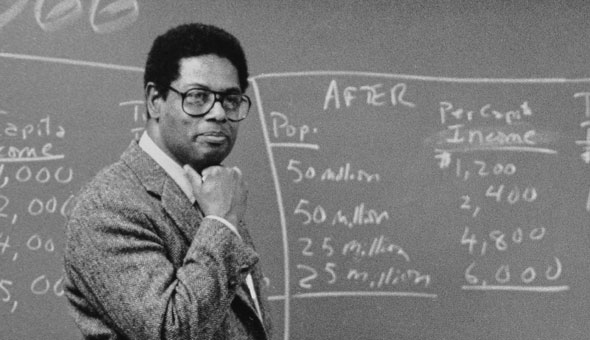
One of my favorite books is Thomas Sowell’s Knowledge and Decisions, in which he builds on Friedrich Hayek’s insight that knowledge is dispersed throughout society. Hayek’s insight that markets can bring dispersed but important knowledge to bear with substantial effectiveness is one that many of us, especially economists, pay lip service to, but it often gets lost in day-to-day debates about policy. Sowell uses Hayek’s insight to understand and critique social, economic, and political institutions, which he judges in terms of “what kinds of knowledge can be brought to bear and with what effectiveness.”
I’m reminded of Sowell in witnessing the current debate surrounding the Federal Trade Commission’s (FTC) proposed rule to enact a nationwide ban on noncompetes in employment agreements. A major policy change like this obviously sets off debate. Among economists, the discussion surrounds economic arguments and empirical evidence on the effects of noncompetes. Among lawyers, it largely centers on the legality of the rule.
But all of the discussion seems to ignore Sowell’s insights. He writes:
In a world where people are preoccupied with arguing about what decision should be made on a sweeping range of issues, this book argues that the most fundamental question is not what decision to make but who is to make it—through what processes and under what incentives and constraints, and with what feedback mechanisms to correct the decision if it proves to be wrong. (emphasis added)
Once we recognize that knowledge doesn’t simply exist out in the ether for us all to grab, but depends instead on the institutions within which we operate, the outcome is going to hinge on who gets to decide and how their knowledge evolves. How easily can the decision maker respond to new information and update their beliefs? How easily can they make incremental changes to incremental information?
To take two extremes, stock markets are institutions where decision makers take account of new information by the minute, allowing for rapid and marginal changes in decisions. At the other extreme is the Supreme Court, where precedents take years or decades to overturn if they are based on information that becomes outdated.
Let’s accept for the sake of argument that all of the best experts today agree that noncompetes are a net negative for society. We have to deal with the fact that we can be proven wrong in the future, and different regimes will deal with that future change differently.
If implemented, the FTC’s total ban of noncompetes replaces the decision making of businesses and workers, as well as the oversight of state governments, with a one-size-fits-all approach. Under that new regime, we need to ask: How quickly will they respond to new information—for example, that it had destructive implications? How easily can they make incremental changes?
One may hope the FTC, as an expert-led agency, could easily adjust to incoming evidence. They will just follow the science! But that response would be self-contradictory here. The FTC just showed that it is happy to go from 0 to 100 with its rules. It went from doing hardly any work on noncompetes to a total ban. In no optimal policy model where the benevolent regulator is responding to information is that how a regulator would process and act on information.
This is part of a long-run trend in politics. Sowell again:
Even within democratic nations, the locus of decision making has drifted away from the individual, the family, and voluntary associations of various sorts, and toward government. And within government, it has moved away from elected officials subject to voter feedback, and toward more insulated governmental institutions, such as bureaucracies and the appointed judiciary.
We may want that. Not every decision should be left up to the individual. We have rights and policies that constrain individuals. The U.S. Constitution, for example, doesn’t allow states to regulate interstate commerce. But the takeaway is not that decentralization is always better. Rather, the point is that we need to consider the tradeoff.




